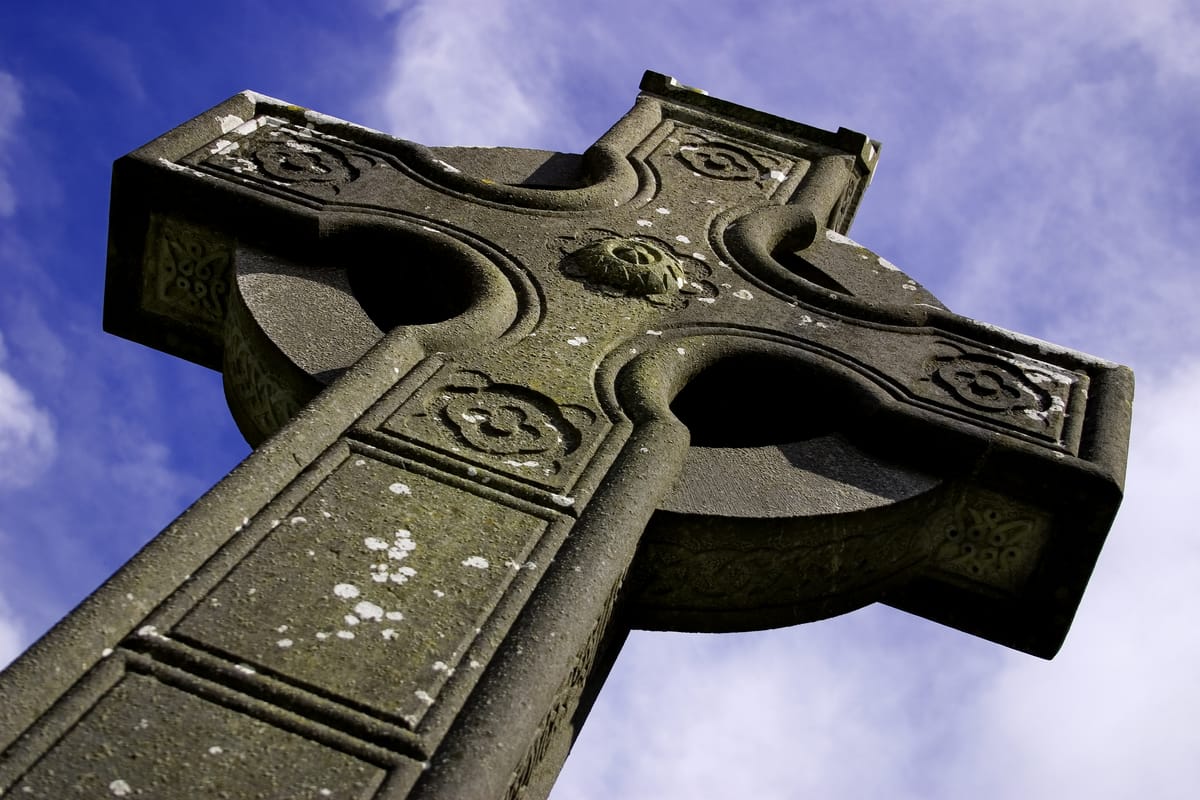Disciple Making Movements (A Soft Critique)

The other day, one of my readers (let's call her Meredith) mentioned that she has experienced some sort of spiritual awakening over the past few years.
Meredith's journey began with a deep sense of loss. (But that story is hers to tell). What came from it, however, intrigues me: as might be expected, Meredith's grief and pain profoundly strained her faith in God; nevertheless, as she leaned into her pain, holding it up bitterly to the very God she felt alienated from, something unexpected occurred – she experienced a renewed sense of God's presence.
(It turns out God knows what it is like to lose things, too – in this case, humanity. But that story has been public from the very beginning...)
At the same time as she was rediscovering God's love, Meredith also discovered a whole new sort of compassion (much like God must feel) for lost people. However, this insight, while deeply encouraging, was accompanied by the heart-wrenching realization that often, we – the very people attempting to be God's people! – unwittingly push others away from him, rather than help them draw nearer.
Now that's a punch to the gut for you.
But sometimes our lowest moments can become key turning points. Meredith responded by examining God more deeply, as well as the person in the mirror:
It was from this very low point that my faith in God was renewed... As my love for the lost grew, I began to ask questions like: "What stumbling blocks have I erected that are not Christ?" and "What traditions of man do not serve the advancement of the gospel?" These are frightening questions for anyone, especially for those of us who love the Church.
If we care about people, and about the health and future of Christian churches in America, then these questions are important and must be asked – not just by pastors and theologians, but by ordinary lay folks, too.
By now, you may have heard how American churches (on the whole) are bleeding congregants at an alarming rate. While some of these people are finding new homes in other congregations, many are giving up on church altogether. This has led to the rapid rise of a new(ish) demographic: spiritual Nones.
Meredith is wondering if the American church as we know it (Christendom) might actually be contributing to that exodus, rather than mitigating it. And what she'd really like to know is: What can we do about it?
(All of us who are Christians should be asking these questions.)
Now, much of Meredith's email pertains to a specific group of people that God has placed in her life and on her heart. (I'll respond to her separately on that.) But Meredith also mentioned some encouraging ideas she's encountered recently:
Last fall, I was introduced to the concepts of Discovery Bible Study and Disciple-Making Movements, which are closely related ideas derived from observations about how the New Testament church grew. Both are also used heavily in the 10/40 window and are part of what the Holy Spirit is using to advance the gospel in these regions.
She also asked if (or how) these ideas might fit within a 'house church' approach.
Meredith asks important questions; she deserves thoughtful answers (but I'm responding publicly, because I think you might have questions like this too). It turns out this is a big topic, with significant ramifications.
Here's how I intend to structure my response:
- by sharing my thoughts on "Disciple Making Movements" (a soft critique);
- by offering a rubric for assessing the health of any church body (regardless of size or model);
- by making some practical suggestions as to what ordinary Christians can do to make things better.
I. Disciple-Making Movements
Meredith referenced Disciple Making Movements (DMM) & Discovery Bible Study (DBA) - A Simple, Reproducible Way to Multiply Disciples.
Perhaps you are familiar with this approach. I was not.
(This means the critiques that follow should all be taken with a grain of salt. This essay represents my first-blush response to their summary document. It is possible my concerns are off the mark. I raise them, however, based on twenty years of my own experiences in church planting and disciple-making. I do not know the people behind this document; they might be fine, well meaning folks. Over the years, however, I have encountered Christians who sound like them. So perhaps my concerns are not unfounded. Caveat emptor! You decide.)
On the one hand, this Disciple Making manifesto recommends much that all Christians should find uncontroversial: Teach people how to read the Bible for themselves? Absolutely! Help followers of Jesus actually keep his commands? Of course! Equip ordinary Christians to engage friends and neighbors who are weary of traditional religion but hungry for meaning and purpose? Sign me up!
I love the emphasis on missional living. We need more of this.
That said, several things give me pause.
1. Language / Buzzwords
Over the years, I have noticed a curious infatuation in evangelical circles with buzzwords like 'movement', 'networks', and 'taking the gospel to the world'.
I am leery of such language (and weary of all the acronyms). True zeal for the gospel is commendable. But I have seen too many well meaning Christians inadvertently substitute love for serving God with love of glory. And in Christian spheres, pursuing something big, epic, audacious – like reaching the world or multiplying hundreds of house churches – is one of the surest paths to praise.
Eugene Peterson calls discipleship a Long Obedience In The Same Direction. It begins, of course, with a small faithfulness on a right trajectory, but true discipleship must instill strength and stamina to carry freight for the long haul.
I have found it helpful to think of both ministry and discipleship as "spiritual practices that can be sustained (and which in turn, sustain me) over ten, twenty, thirty-plus years." This weeds out a lot of quick-fix contenders.
I think more pastors should study Gerhard O. Forde's On Being A Theologian of The Cross, which explains how Luther realized that the theology of the cross fundamentally challenges our theologies of glory.
I think more Christians should immerse themselves in Hebrews 11, which teaches that throughout history, the way of faith has always been the way of suffering and exile, of not receiving the things promised, but merely glimpsing them from afar (Heb 11:13, 39). The author of Hebrews does not stir up the saints by pointing to Acts 2 and saying, "Now we're going to do great things too!" Instead, he points us to Jesus and to the way of the cross, and says we should prepare to suffer too (Heb 12:1-4).
Neither Jesus nor the Apostles ever command first century Christians to go "plant churches" or "start movements" or "change culture" (It's true the Holy Spirit does all those things – he plants churches, starts movements, changes culture – but always at his pleasure, in unexpected ways and means, and rarely by people seeking big things).
What the Bible does say quite clearly is: Go and make disciples... (Mt 28:19).
2. Discipleship
At first blush, discipleship (by teaching people how to study the Scriptures for themselves) seems like a strength for Disciple Making Movement:
Based on Jesus’ commands in Matthew 28, the focus is on obedience to Scripture and multiplying spiritual generations...
Again, there is much to commend here, and I am reluctant to be overly critical. Still, I see a few places where greater clarification would be helpful.
For example, when was the last time you met a pastor who wasn't interested (at least in theory) in making disciples? Similarly, when have you met a Christian who didn't at least say they believe in grace? I find both terms too nebulous on their own. After all, when have you met someone who doesn't want world peace? Everyone is for it – even China and Russia!
The debate hinges on what it means and how we get there.
So too with discipleship, we don't really feel the rub until we try to get a diverse group of people to spell out what spiritual life together should look like, to agree on how best to implement that vision, then to make vows to one another: to submit, yield, lead and follow. The devil is always in the details.
I'd like to know more about what Disciple Making thinks a well-discipled life entails.
3. Obedience
Disciple Makers seems to signal how they'd answer this question: obedience!
Again, I am in favor of following the Bible's instructions. But so were the Pharisees (and Jesus was extremely critical of them). Furthermore, this interest in obedience is not new to the American church; over forty-plus years of my own adult life I've known plenty of honest, earnest Christians in Bible believing churches who would say they've spent their lives pursuing the very thing Disciple Making is calling for.
(I suspect remnants of the faithful have quietly persisted in communities of faith for as long as there has been a people of God (c.f. 1 Ki 18:14-18). But I can understand how someone who can see (rightly) the shortcomings in a church might conclude (wrongly) that God is not present at all. Similarly, I can appreciate that when someone truly encounters the resurrected Jesus and starts trying to take his teachings seriously – often for the first time in their life – obedience takes on a whole new level of priority and urgency. And when we are excited about something, it is easy to assume that people who don't share our level of enthusiasm just don't care at all.)
Obedience is not a new idea, of which the saints who came before us were heretofore unaware. Furthermore, raw obedience offers no guarantee of hitting the bullseye of Jesus' gospel (although unrepentant disobedience will surely miss it).
How is Disciple Making's obedience different from that of the Pharisees?
How does Disciple Making's obedience magically land with those who have given up on traditional Christian communities (which have themselves been pursuing obedience for years)?
The Disciple Making manifesto offers no answers to such questions.
Rather than focusing on mere obedience, I'd prefer to hear them emphasizing an encounter with the biblical Jesus, who is actually alive and well and working in this world (doing something in the here-and-now); who speaks to his people (so we need to learn how to listen); who is calling us into his work (which will involve personal spiritual renewal, but will also require being deeply connected to a local church, our vocation, and to our neighbors). All of this will necessitate us hearing his voice and responding in faith (c.f. Rom 1:18).
My definition given here undoubtedly requires obedience (and repentance), but it entails much more than that, too.
4. Church
I appreciate Disciple Making's starting point:
Based on Jesus’ commands in Matthew 28, the focus is on obedience to Scripture and multiplying spiritual generations...
I concur! But I find it ironic that while emphasizing the importance of taking Jesus' teaching seriously, they conclude their opening sentence by asserting:
– [which] often takes place outside of traditional church structures.
(Where is that in Scripture?)
Jesus stated unequivocally that he came to build his church (Mt 16:18); where do Jesus or his Apostles or the historical records of the early church offer any indication that we can pursue this kingdom work of making disciples without calling people into (and being vitally connected with ourselves) the church?
How do we teach people to "obey your leaders and submit to them" (Heb 13:17); to practice church discipline "when you see your brother in sin" (Mt 18:15); to "purge the evil person from your midst" but to NOT to apply this standard to "the immoral of this world [outsiders] (1 Cor 5: 9-13)?
I find it difficult to take all of these commands seriously (to obey them) without a robust and nuanced understanding of a) Christ's church, and b) what it means to belong to it his church (e.g. vows, commitments, membership).
I am not against parachurch ministries, or suggesting there is no need for faith in the workplace; on the contrary, I think both are important.
But I am dubious of those who think they can thrive and flourish as Christians – making disciples, multiplying spiritual generations even! – without also teaching them the vital importance of being connected to a local church. And so I wonder if Disciple Making (as described) might encourage such misconceptions?
5. Leadership & Teaching
Most significantly, I wonder if Disciple Making underestimates the difficulty of this work to which we Christians are called?
In my experience, forming biblical Christian community (that lasts), being conformed in the image of Christ (in a way that carries you through your entire life), is rarely simple, easy, or sexy. It believe it to be the hardest (but also the most rewarding) thing we can ever attempt. It requires great wisdom and perseverance. It is often counterintuitive. It is a sustained march over a long haul in adverse conditions under enemy fire.
Paul says, "Be imitators of me as I am of Christ" (1 Cor 11:1). That's discipleship.
It is extremely difficult to replicate yourself in others. (Ask parents about trying to instill their values, beliefs, and work ethic in their children – is it easy? or hard? You already know the answer...)
Why do we expect Christian discipleship (with a single individual to whom you have no ties of blood or kin) to be any easier?
It is even harder to replicate yourself in an entire community of people with different stories, hurts, backgrounds, fears, desires. From its inception, Christian community has insisted on welcoming people from different classes, different races, different walks of life, (all of them sinners!). Christianity calls us to care for the orphans and widows (Jas 1:27); to bring the homeless poor into our homes (Is 58:7), to give them a seat at the table alongside the rich (Jas 2:3).
Fundamentally, the gospel is about breaking down the dividing walls of cultural hostility (Eph 2:14). This is difficult work. It is often painful (2 Cor 2:4).
In The Princess Bride, Buttercup tells her captor: "You mock my pain!"
To which the Dread Pirate Roberts (Wesley in disguise) responds: "Life is pain, highness; anyone who says otherwise is selling something."
Consequently, I find myself skeptical when Disciple Making claims:
Movements grow through small, simple gatherings that multiply as new disciples are empowered to lead.
I feel like someone is selling something.
I say this as someone who's been neck deep in this work on a full time basis for almost twenty years.
If only it were this simple.
As I see it, our job as disciple-makers, is to see Christ formed in all of the people Christ has given us – Paul describes it as the "anguish of perpetual childbirth" (Gal 4:19) – even as we struggle to see Christ fully formed in ourselves.
Making disciples is an extremely challenging mission.
I feel like Disciple Making might be underestimating the need for competent leaders and teaching:
Rather than someone teaching, the group discovers God’s truth together.
To me, this sounds like groupthink (and I'm skeptical of that too).
In his letter to the Ephesians, Paul describes a five-fold gifting of "apostles, prophets, evangelists, shepherds, and teachers to equip the saints for the work of ministry" (Eph 4:11-12).
While I fully acknowledge that we Presbyterians need to do a better job of embodying the first three roles (not just the last two), in my experience it takes both strong leadership and strong teaching (over a prolonged period of time) to help believers develop a mature, robust, nuanced framework for thinking biblically about life and work.
I am dubious of approaches that reduce leadership to one or two of these giftings or suggest you don't really need leaders to equip the saints.
Conclusions
As I said up above, I intend for this to be a soft critique of Disciple Making Movement. (Sheesh, Christian – what would a strong critique look like?)
Would I dissuade Meredith from exploring this further? Not at all!
But I'd want to help her to be wise, cautious, thoughtful. To really kick the tires. To ask good questions. And to run any conclusions by her own trusted spiritual mentors.
I do see several lines of inquiry (excluded above for brevity) which might warrant further exploration:
- Individualistic – Q: What does the gospel actually do in people? To me, Disciple Makings' understanding of the whole spiritual project feels overly individualistic – as if the work of Jesus is primarily about personal spiritual renovation (and hence it can happen anywhere, even outside a church).
Paul, on the other hand, constantly frames the work of Jesus in both personal and corporate terms (c.f. Eph 2:14-22, where he is talking about the entire body being built into a dwelling place for God.)
Indeed, if the saints are to be equipped, "for the work of ministry, for building up the body of Christ" (Eph 4:12) it would seem to follow corporate obligations (to a local church body) must be part of the discipleship process.
- Cultural considerations – Meredith's email mentioned "the 10/40 window" which is another one of those evangelical buzzwords of which I am wary. I have noticed that some Christians who are highly enthusiastic about discipleship point to "great works" happening in other parts of the world (largely unreached by Christianity) express a fervent desire to see the same things happening here (usually by the same means and methods being used elsewhere).
To me, this fails to appreciate the huge differences between Pre-Christian, Christendom, and Post-Christian cultures – and how the gospel of Jesus wins each of these cultures differently.
I would argue that historically, we see "great movements of the Spirit" often in Pre-Christian culture (e.g. Acts 2), occasionally in Christendom culture (e.g. revivals), and rarely in Post-Christendom (here conversion and discipleship happen extremely slowly, because so people hold so many negative opinions about Christianity which can only be dismantled by a long obedience in a different direction. Lack of signs and wonders does not necessarily mean we are doing ministry wrong; perhaps this is how the kingdom comes in our particular cultural moment).
In my experience, people living in Christendom rarely appreciate the cultural differences in Pre or Post Christendom; as such, they make little headway with those cultures. It would be interesting to know more about Disciple Making's views of culture.
Next up (within a week), I'll propose a rubric for assessing the spiritual health of any Christian community (regardless of size or model)...
II. Assessing Church Health
Here's the beginning of my answer...







Member discussion